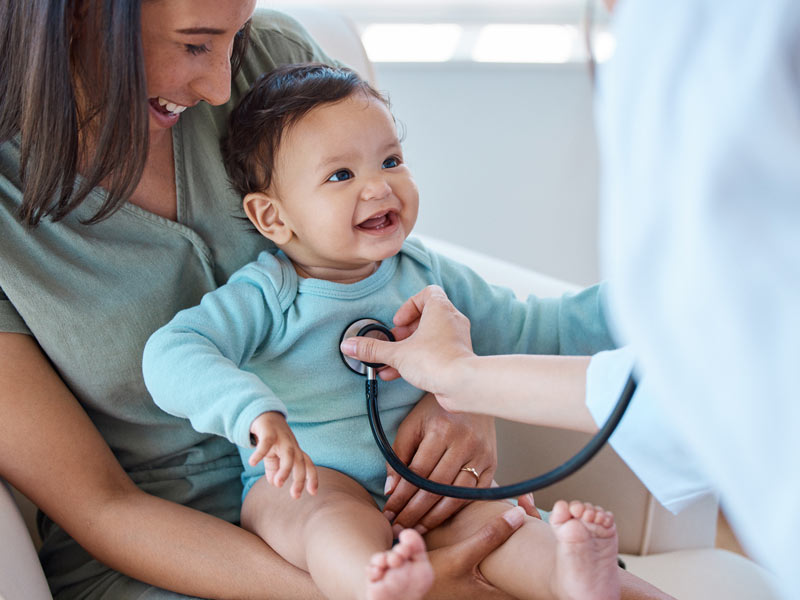AAFP Endorses RSV Antibody for Infants and Young Children
Aug. 11, 2023, News Staff — The AAFP has formally approved FDA and CDC action on the use in infants and young children of nirsevimab, a long-acting monoclonal antibody designed to prevent lower respiratory tract disease due to respiratory syncytial virus infection. The antibody is the first to be approved and recommended in the United States to prevent severe RSV disease in all infants.

The executive committee of AAFP’s Commission on Health of the Public and Science conducted an expedited review of the evidence and, on Aug. 10, recommended that the Academy support an earlier recommendation on nirsevimab from the CDC’s Advisory Committee on Immunization Practices. AAFP Board Chair Sterling Ransone, M.D., FAAFP, accepted the executive committee’s recommendations later that evening.
Based on the review, the AAFP recommends that
- infants younger than 8 months who are born during or entering their first RSV season (typically fall through spring) receive one dose of nirsevimab (100 mg for infants who weigh 5 kg or greater), and
- children 8 to 19 months old who are at increased risk for severe RSV disease and entering their second RSV season receive one 200-mg dose of nirsevimab.
The Academy has also updated its Respiratory Syncytial Virus Vaccines and Therapeutics webpage to reflect these recommendations.
The FDA approved nirsevimab (marketed as Beyfortus) on July 17. About two weeks later, the ACIP made, and the CDC adopted, the recommendation that the AAFP has approved. The CDC noted that RSV is the leading cause of hospitalizations for infants and older babies at higher risk.
“This is a spectacular advancement,” Jamie Loehr, M.D., FAAFP, a practicing family physician with Cayuga Family Medicine in Ithaca N.Y. and a member of the ACIP, told NPR earlier this month. “It’s going to help families and offices and keep kids out of the hospital.”
The ACIP also voted unanimously to include nirsevimab in Vaccines for Children, a federally funded program that provides recommended vaccines and immunizations at no cost to eligible children. The CDC is working to make nirsevimab available through the program, and the AAFP is monitoring these efforts.
Nirsevimab was developed through a partnership between two pharmaceutical companies: AstraZeneca and Sanofi. Both firms expect it to be available ahead of the upcoming RSV season, as a single-dose intramuscular injection with a prefilled syringe.
RSV infection is a common cause of respiratory illness in children. While most children who contract the illness experience mild symptoms, the CDC estimates that each year, 58,000 to 80,000 children younger than 5 years old are hospitalized due to RSV infection. Infants born prematurely, those younger than 6 months old and children with weakened immune systems are among those at greatest risk for severe illness.